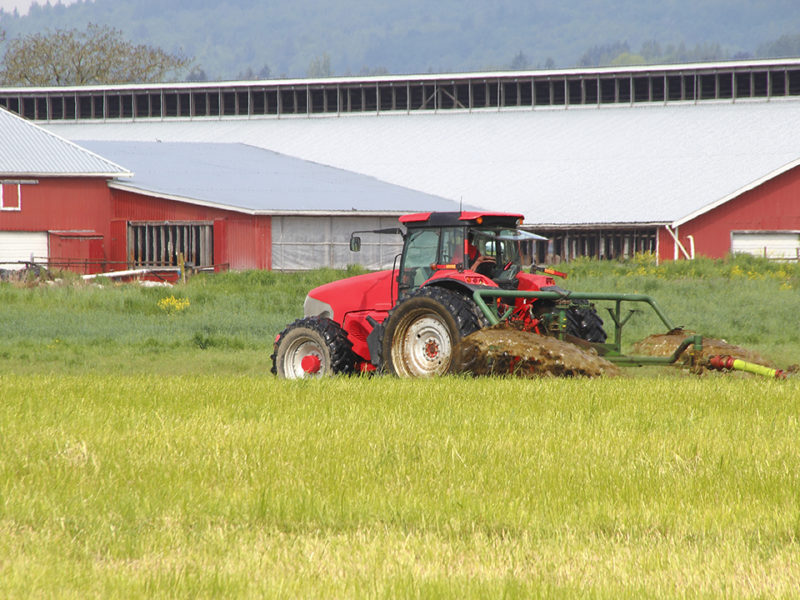SALMON ARM – The BC Dairy Association is compiling data to better understand the financial impact on farms of the new Agricultural Environmental Management Code of Practice (AEM Code).
“We’re working to understand an accurate assessment of the AEM code-related costs on farms,” says BCDA general manager Jeremy Dunn. “We’re trying to get a high degree of information; it’s trying to provide statistical relevancy and accuracy for not only the provincial scope but a regional scope.”
BCDA has lots of anecdotal information about the difficulties farmers are having with the new code, he says, but no hard data.
“We know from farmers that the code is new and is asking them to manage their nutrient storage, nutrient management and testing in different ways than they have previously and has different requirements,” he explains.
There are also different requirements for different regions of the province, creating the need for provincial and regional data on the costs producers are facing.
Dunn says uncertainty around how many farms are complying, how many are having problems and even how many might not be aware of the need to comply with the new code makes it difficult to pinpoint how the association can best help farmers.
The survey now underway will aggregate data collected from producers and use it to chart the best course of action.
“The environmental aspects of this are very important,” Dunn adds. “Farmers live where they work. They’re maintaining long-term sustainable businesses and this is a change to the way that those businesses are operated and it’s important for us to make sure we’re focusing our time, effort and resources in the right areas to help farmers.”
He says the data will help BCDA better communicate with both producers and the government if it needs to lobby for support or a change in policy.
“Better data is going to help us provide a stronger argument and, ideally, a better result,” he says.
Dunn praises efforts by the BC Ministry of Agriculture to inform producers about the new code, and attend meetings and agricultural events to provide information and answer questions.
“The ministry is doing its part; we’re trying to do our part to facilitate that exchange but also to understand the gaps so we can help alleviate the pressures and pains that farmers might be feeling,” he says.
Nutrient management agrologist Josh Andrews demonstrated the ministry’s ongoing outreach to producers with an update at the North Okanagan Dairy Seminar and Trade Show in Salmon Arm on February 27 hosted by the North Okanagan dairy extension advisory committee.
Andrews provided an overview of AEM Code requirements relevant to the approximately 100 producers and industry representatives at the event.
He focused on temporary and permanent storage, nutrient application, setbacks, nitrogen and phosphorus level limits, record-keeping, nutrient management plans (NMPs) and soil testing.
“Soil testing is the most valuable thing you can do to know the nutrient status on your farm,” he says.
While environmental farm plan advisors can help producers with an EFP undertake testing, Andrews says it can also be done in-house.
“A lot of people think that if you want to do soil testing, you need to pay someone to do it. That is absolutely not true,” he says. “I encourage people that want to test their soil, that they can do that themselves.”
He also reminded North Okanagan farmers that the deadline for post-harvest nitrate testing varies for different areas and is dependent on soil type.
Regarding difficulties for producers around the new code, Andrews says the ministry is working to provide an online course on NMPs that will walk producers through the process.
Dunn says there is an aggressive deadline for the dairy survey so he urges dairy producers who have not completed or received a survey, or who have questions about the information being gathered, to call the BCDA promptly.
“We’re hoping to have a real good sense of this for the summer so that we can begin to put plans in place to effect change on that information in the fall,” he adds.


 Abattoirs required to cut back overtime
Abattoirs required to cut back overtime